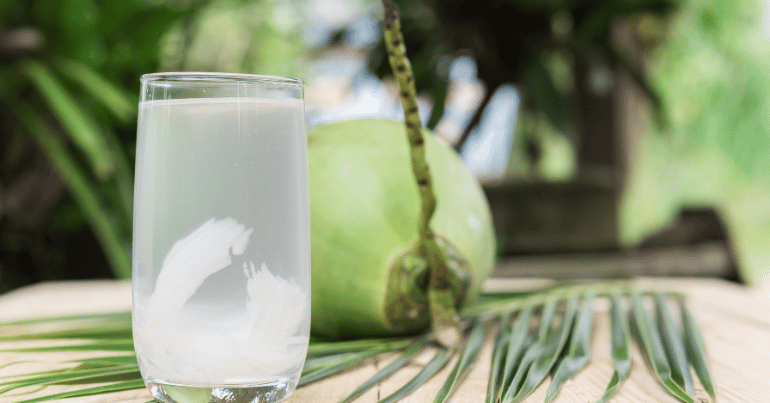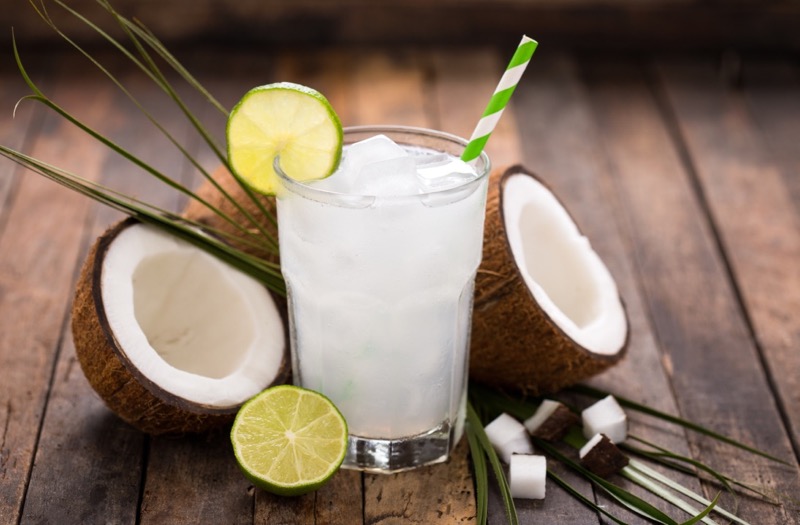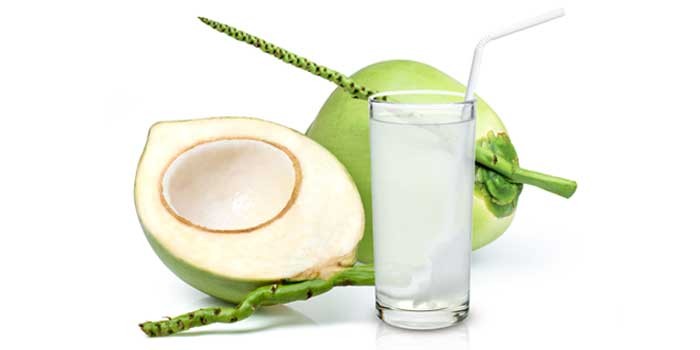Coconut water has grown in popularity in recent years, thanks to its reputation as an isotonic sports drink. Our expert nutritionist investigates the health claims.
1. Minerals Found Naturally

Natural sources of minerals such as potassium, magnesium, calcium, and salt can be found in coconut water. Many of us don’t receive enough of these vital electrolyte elements, which are essential for heart health as well as proper skeletal and muscular function. Some even say that the electrolyte balance in many isotonic sport beverages is comparable to that of coconut water.
It’s important to keep in mind, though, that a 100ml portion only contains 165–250 mg of potassium, which is not much more than the usual avocado, banana, or potato. Other foods high in potassium exist and are probably more affordable and accessible than coconut water.
2. Coconut Water Providing Antioxidant Properties

Research on animals suggests that coconut water contains compounds that have a protective, antioxidant effect. Two of the phytonutrients that have these effects are shikimic acid and caffeic acid, and the benefits in the studies ranged from decreased cholesterol markers to improvements in liver health.
However, to date there have been no human studies to replicate these findings, so it’s too early to say whether the same benefits may be relevant for us.
3. Coconut Water Manage Blood Sugar Level

According to research on animals, coconut water may be able to help control blood sugar levels and lessen the negative consequences of oxidative stress that are linked to diseases like diabetes. The benefits of coconut water may also stem from its magnesium content, as magnesium aids in blood sugar regulation, particularly for individuals who have diabetes. But, there are better dietary sources of magnesium; avocado and banana are two examples.
Studies on animals seem promising, but additional investigation is required to assess these effects in people.

